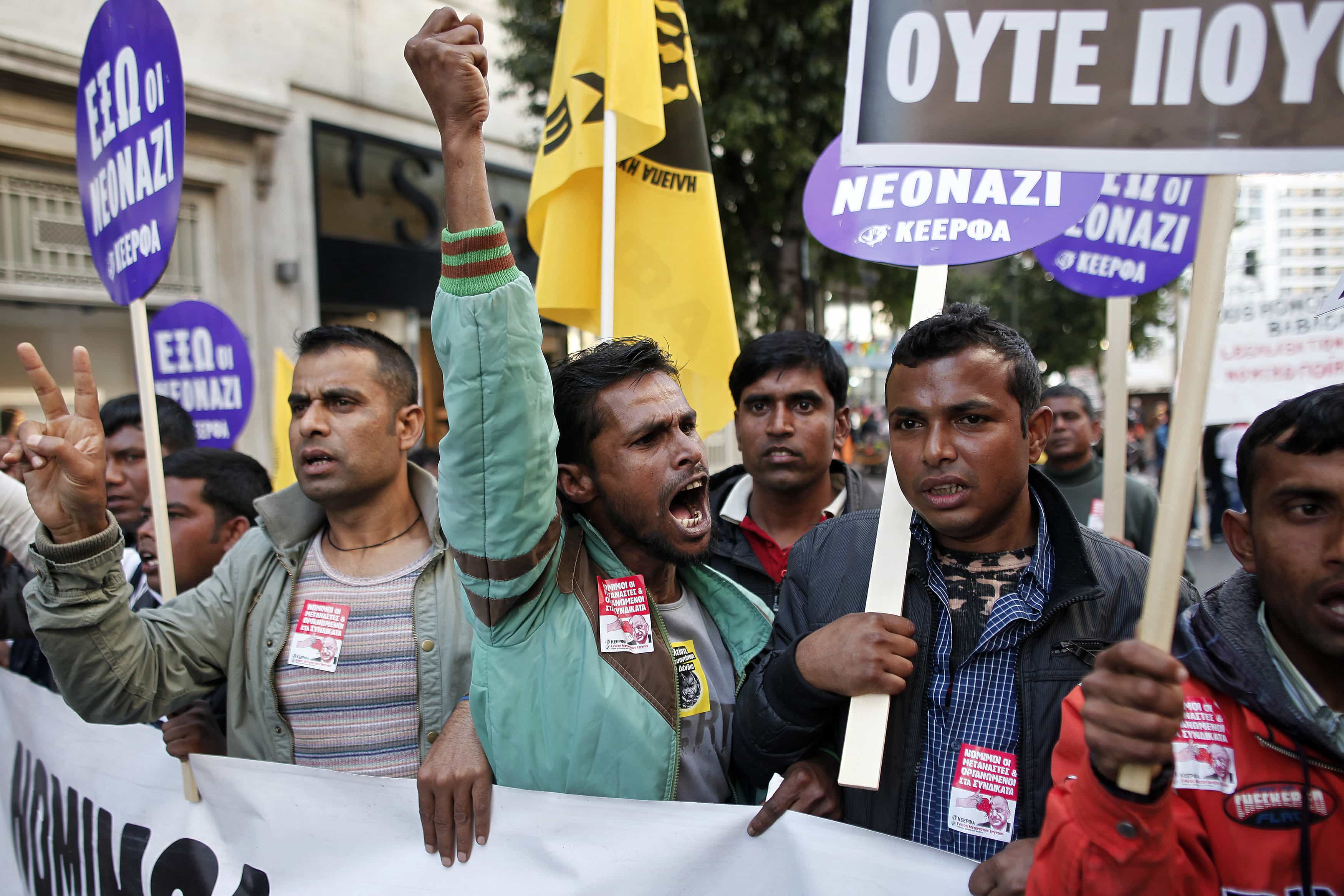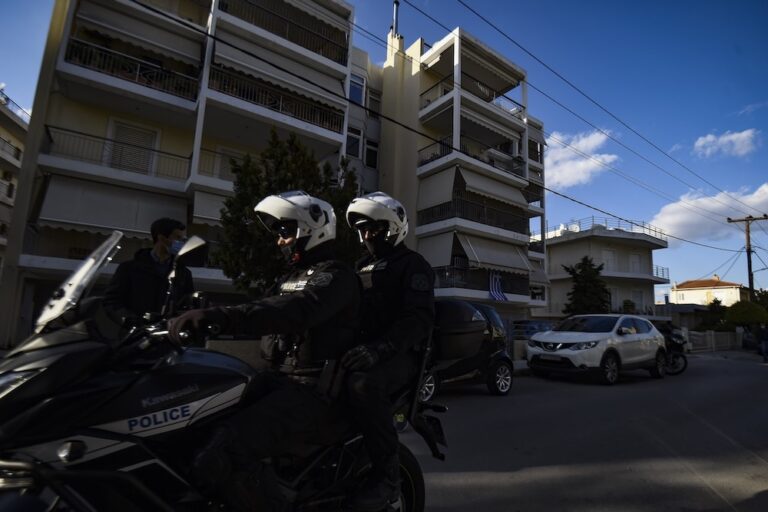Members of Greek parliament should amend the draft to include measures to combat racist violence and protect free speech, Human Rights Watch said on 2 September 2014.
Parliamentary review of a draft anti-racism law in Greece, which began in November 2013, has resumed following a nine-month interruption and is expected to be debated in parliament’s recess section on September 2 and 5, 2014. Members of parliament should amend the draft to include measures to combat racist violence and protect free speech, Human Rights Watch said today.
The current version of the bill, if approved, would toughen criminal sanctions for incitement to hatred, discrimination, and violence. It would also criminalize denial of genocide, war crimes, and crimes against humanity. But despite an epidemic of racist violence in the Greek capital, the bill does not include measures to encourage reporting of violent hate crimes or to ensure appropriate action by the police and judiciary to counter hate violence.
Human Rights Watch has issued detailed recommendations for the bill, which was first introduced in November 2013, urging members of parliament to amend the draft to:
•Encourage reporting by requiring police and prosecutors to investigate any crime that may be categorized as a violent hate crime, regardless of its nature, without requiring victims to pay a fee to file their complaint;
•Explicitly require prosecutors to investigate bias as a possible motive in a crime and to present any evidence of bias to the court;
•Require courts to consider evidence of bias motivation, and to explain the reasons for applying or not applying a penalty enhancement;
•Require law enforcement officials to suspend any immigration law actions arising from the undocumented status of a victim or witness of an alleged attack, pending a prima facie assessment by a prosecutor of the merits of the complaint about the attack; and
•Institute by law the joint ministerial decree adopted on June 5 that gives prosecutors the authority to grant residence permits on humanitarian grounds to undocumented victims and witnesses of hate crimes.
Finally, the proposed hate crimes reform should acknowledge explicitly that perpetrators sometimes have mixed motives, and make clear that multiple motives should not preclude investigating and prosecuting the case as a bias crime.
Members of parliament should also carefully review provisions in the bill that raise concerns about undue interference with freedom of expression and association, Human Rights Watch said. In particular, speech that falls short of incitement to violence – including denial of genocide, war crimes, and crimes against humanity – should not be criminalized, however offensive it may be. And no one should risk prosecution simply for membership in a legal political party.
Any measures that would interfere with the rights to freedom of association and expression should be narrowly drawn to ensure that they are necessary and proportionate, and criminal laws should be crafted to provide legal certainty – that is, making clear to people what would constitute a violation of the law.
“Greece is waking up to the fact that there is a serious problem with racist violence,” said Eva Cossé, Greece specialist at Human Rights Watch. “Members of parliament should seize the opportunity to make this bill a genuine part of the solution.”
To read the July 2012 Human Rights Watch report, “Hate on the Streets: Xenophobic Violence in Greece,” please visit:
http://www.hrw.org/news/2012/07/10/greece-migrants-describe-fear-streets



